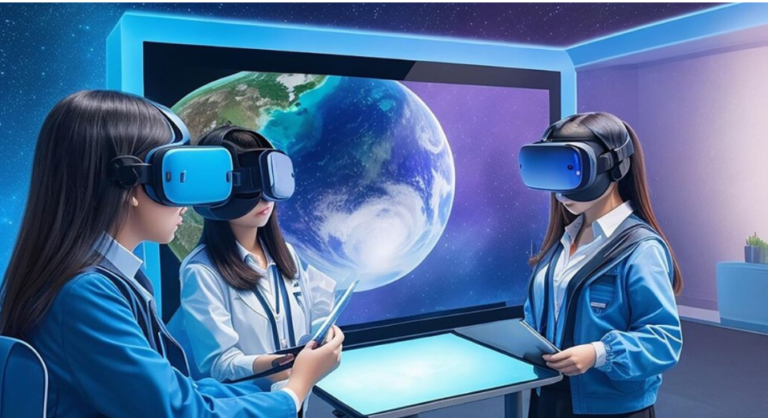Antiquità: A Glimpse into the Past
Antiquità, an Italian term, translates to “antiquity” in English. It refers to the ancient past, particularly the period of classical civilizations such as ancient Greece, Rome, and Egypt. This era is renowned for its remarkable contributions to art, architecture, philosophy, and culture, which continue to influence modern society.
The Essence of Antiquità
Antiquità encompasses a wide range of artifacts, architectural details, decorative objects, and furnishings originating from these classical civilizations. These historical relics are admired for their beauty, skilled craftsmanship, and embodiment of cultural values from millennia past. The term also signifies the ancient being or the state of being ancient, often used to describe old temples, monuments, and traditions.
Cultural Significance
The period of classical antiquity, spanning from the 8th century BC to the 5th century AD, is marked by the flourishing of ancient Greece and Rome. This era saw the creation of iconic structures like the Parthenon and the Colosseum, which symbolize the grandeur and architectural prowess of these civilizations. The cultural foundation laid during this time has profoundly influenced various aspects of modern life, including language, politics, law, education, philosophy, science, and the arts.
Legacy and Influence
The legacy of antiquità is evident in the Renaissance, a period of revival that began in the 14th century, drawing heavily on the art, philosophy, and literature of classical antiquity. This revival continued through various neo-classical movements in the 18th and 19th centuries, further cementing the enduring impact of ancient civilizations on contemporary culture.
The Impact of Antiquità on Art and Literature
Antiquità, referring to the ancient period of classical civilizations like Greece and Rome, has had a profound and lasting impact on art and literature. This influence is evident in various aspects of modern culture, from artistic techniques to literary themes.
Art
-
Classical Aesthetics:
- Symmetry and Proportion: Ancient Greek and Roman art emphasized symmetry, proportion, and balance. These principles are evident in the architecture of the Parthenon and the sculptures of Phidias.
- Realism and Idealism: Greek sculptors like Praxiteles and Lysippos aimed to depict the human form in an idealized yet realistic manner. This approach influenced Renaissance artists such as Michelangelo and Leonardo da Vinci.
-
Architectural Influence:
- Columns and Arches: The use of columns (Doric, Ionic, and Corinthian) and arches in ancient architecture has inspired countless buildings, including neoclassical structures like the U.S. Capitol and the British Museum.
- Public Spaces: The design of public spaces, such as forums and amphitheaters, has influenced modern urban planning and the construction of theaters and stadiums.
-
Symbolism and Mythology:
- Mythological Themes: Ancient myths and legends have been a rich source of inspiration for artists. Paintings and sculptures depicting gods, heroes, and mythological events continue to captivate audiences.
- Symbolic Motifs: Symbols like the laurel wreath, the lyre, and the olive branch, originating from antiquità, are still used in art to convey themes of victory, music, and peace.
Literature
-
Epic Poetry:
- Homer’s Influence: Works like the “Iliad” and the “Odyssey” have set the standard for epic poetry. Their themes of heroism, adventure, and the human condition resonate in modern literature.
- Virgil’s Aeneid: This Roman epic has influenced countless writers, including Dante and Milton, who drew on its themes of duty, fate, and the founding of civilizations.
-
Drama and Theatre:
- Greek Tragedy and Comedy: Playwrights like Sophocles, Euripides, and Aristophanes explored complex human emotions and societal issues. Their works laid the groundwork for modern drama and theater.
- Roman Adaptations: Roman playwrights like Plautus and Seneca adapted Greek plays, adding their own cultural nuances and contributing to the development of Western theatrical traditions.
-
Philosophical Texts:
- Socratic Dialogues: The dialogues of Plato, featuring Socrates, have influenced philosophical discourse and literary forms. Their exploration of ethics, politics, and knowledge continues to be relevant.
- Stoic and Epicurean Writings: The works of philosophers like Seneca, Epictetus, and Lucretius have shaped literary themes of personal virtue, happiness, and the nature of the universe.
Lasting Legacy
The impact of antiquità on art and literature is a testament to the enduring power of ancient civilizations. Their artistic techniques, architectural innovations, and literary themes continue to inspire and shape contemporary culture. By studying and appreciating these ancient contributions, we gain a deeper understanding of our own cultural heritage and the timeless nature of human creativity.
Antiquità Setting the Foundations of Western Civilization
The term antiquità refers to the ancient period, particularly the classical civilizations of Greece and Rome, which laid the foundational stones for Western civilization. This era, spanning from the 8th century BC to the 5th century AD, is marked by significant advancements in various fields that continue to influence modern society.
Key Contributions of Antiquità
-
Philosophy and Thought:
- Greek Philosophy: Thinkers like Socrates, Plato, and Aristotle explored fundamental questions about existence, ethics, and knowledge. Their works form the bedrock of Western philosophical thought.
- Roman Law: The Roman legal system introduced concepts such as justice, equality before the law, and the rights of individuals, which are integral to modern legal systems.
-
Art and Architecture:
- Greek Art: Known for its emphasis on proportion, balance, and beauty, Greek art includes masterpieces like the Parthenon and sculptures such as the Venus de Milo.
- Roman Engineering: Romans excelled in engineering, constructing enduring structures like the Colosseum, aqueducts, and roads that facilitated the expansion and administration of their empire.
-
Literature and Drama:
- Epic Poetry: Works like Homer’s “Iliad” and “Odyssey” are epic tales that have shaped Western literary traditions.
- Theatre: Greek tragedies and comedies by playwrights such as Sophocles and Aristophanes explored human nature and societal issues, influencing modern drama and literature.
-
Science and Mathematics:
- Greek Innovations: Figures like Pythagoras, Euclid, and Archimedes made groundbreaking contributions to mathematics and science, laying the groundwork for future discoveries.
- Roman Medicine: Roman advancements in medical knowledge and public health practices, such as the development of surgical tools and techniques, have had a lasting impact.
-
Political Systems:
- Democracy: The concept of democracy, first practiced in Athens, introduced the idea of citizens participating in governance, a principle that underpins many modern political systems.
- Republicanism: The Roman Republic’s system of elected representatives and checks and balances influenced the development of modern democratic governments.
Lasting Legacy
The legacy of antiquità is evident in the Renaissance, which saw a revival of classical learning and values, and in the Enlightenment, which emphasized reason and individualism. The principles and achievements of ancient Greece and Rome continue to shape contemporary Western culture, politics, and thought.
Summary
In summary, antiquità is not just a term but a window into a rich and influential past that continues to shape our present and future. The artifacts and traditions from this era offer invaluable insights into the cultural and intellectual achievements of ancient civilizations, reminding us of the timeless nature of human creativity and ingenuity.
FAQs
-
What does the term “antiquità” mean?
Antiquità is an Italian term that translates to “antiquity” in English. It refers to the ancient past, particularly the period of classical civilizations such as ancient Greece, Rome, and Egypt.
-
Why is antiquità significant?
Antiquità is significant because it represents a period of profound intellectual, artistic, and political achievements that have laid the foundations for modern Western civilization. The contributions from this era in philosophy, art, architecture, literature, and science continue to influence contemporary society.
-
What are some key contributions of antiquità?
- Philosophy: Thinkers like Socrates, Plato, and Aristotle explored fundamental questions about existence and ethics.
- Art and Architecture: Iconic structures like the Parthenon and the Colosseum symbolize the architectural prowess of ancient civilizations.
- Literature: Epic poems like Homer’s “Iliad” and “Odyssey” have shaped Western literary traditions.
- Science and Mathematics: Figures like Pythagoras and Archimedes made groundbreaking contributions to these fields.
- Political Systems: The concepts of democracy and republicanism were first practiced in ancient Greece and Rome.
-
How did antiquità influence the Renaissance?
The Renaissance was a period of revival that began in the 14th century, drawing heavily on the art, philosophy, and literature of classical antiquity. This revival continued through various neo-classical movements in the 18th and 19th centuries, further cementing the enduring impact of ancient civilizations on contemporary culture.
-
What are some famous artifacts from antiquità?
Famous artifacts include the sculptures of the Venus de Milo, the busts of Roman emperors, and the intricate mosaics found in ancient Roman villas. These artifacts are admired for their beauty, skilled craftsmanship, and embodiment of cultural values from millennia past.
-
How did ancient civilizations contribute to modern science and technology?
Ancient Greek and Roman scientists and engineers made significant advancements in various fields. For example, Archimedes’ principles of buoyancy and leverage are still fundamental in physics, and Roman engineering innovations like aqueducts and roads have influenced modern infrastructure.
-
What role did religion play in antiquità?
Religion was central to daily life in ancient civilizations. The Greeks and Romans worshipped a pantheon of gods and goddesses, each associated with different aspects of life and nature. Temples and religious festivals were integral to their culture.
-
How did antiquità shape modern political systems?
The concept of democracy, first practiced in Athens, introduced the idea of citizens participating in governance. The Roman Republic’s system of elected representatives and checks and balances influenced the development of modern democratic governments.












+ There are no comments
Add yours